Targeting Vijay will put politics back into Tamil cinema’s hit formula

Mail This Article
A son who had left home as a teenager reunites with his family after several years. When the family is having a happy time together, he makes tea for everyone. He says he learnt to make good tea during his tough times as a helper in a tea stall. The father retorts in a lighter vein: “when you reach a high position, please do not order our people to learn an alien language!” Nobody in the Tamil audience would miss the pun and its intended target in this random scene in Jeethu Joseph’s Karthi-starrer Thambi.
Thambi is a thriller drama, much like the director’s earlier superhit Dhrishyam, with no political undertones. Still, the writers could not avoid this satire that suited the situation well.
The fact that it is nearly impossible to separate politics from cinema in Kollywood is as old as MGR’s rise to superstardom. MGR was probably the first star to carefully weave the right political messages and punchlines that suited his political plans into dialogues and lyrics.
‘Odi odi uzhaikkanum, oorukkellam kodukkanum; aadi paadi nadakkanum, anbai naalum valarkkanum’ (you should energetically work hard and give back to the society; you should live happily singing and dancing and promote love) was one such songs, ironically performed by the circus artist hero during his performance with elephants.
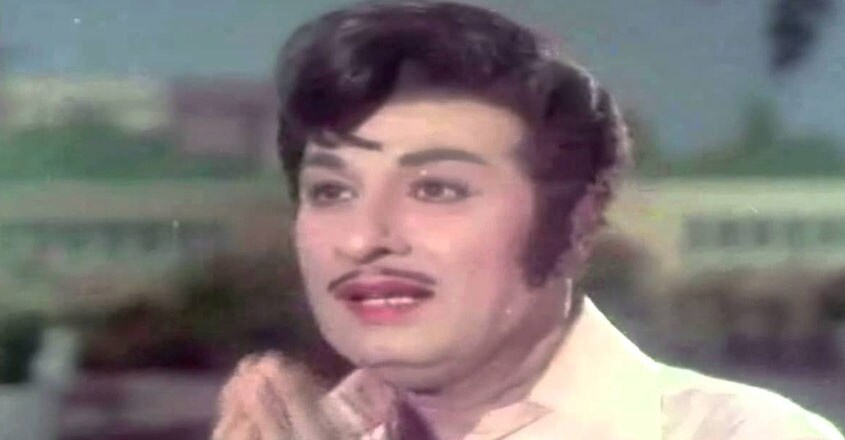
MGR believed that his roles were to show how a man should live and believe.
His rise to the helm of the government was through roles ranging from a Robinhood-type thief to a rikshaw puller. His films were good family entertainers for the masses that carefully cultivated an image for MGR as the saviour of the poor.
Singling out Vijay
Talking of Vijay (“Joseph” Vijay to the right-wing Hindutva army), he has not made any explicit political moves like his seniors Kamal Haasan and Rajnikanth.
Vijay too funds a fans association that doubles up as charity like many other actors. He is not the only one taking a dig at politicians through films either.
Then why does the random punchlines in his films touch a raw nerve of the right-wing politicians?
After all, his films, unlike that of MGR in which the hero is always seen to represent an ideology and fight for the poor, are not loaded propaganda vehicles, but outright commercial entertainers that offer a formulaic cocktail of fast-paced action, romance, family sentiments, songs and dance.
From Katthi to Mersel
The random political punchlines started getting attention with his 2014 hit Katthi directed by AR Murugadoss. In a press conference, the hero lashes out against the injustices of the ruling class thus: “A beer baron who owes banks 5,000 crores in loan repayment washes his hands off and does not commit suicide, but a farmer who had taken a loan of mere 5,000 is forced to consume pesticide and end his life.”
The hero of Katthi leads a revolution for the farmers who are denied their right to use their land or ground water for farming. With the exception of Theri, he continued to have scenes replete with political references in all the three movies that were released till date.
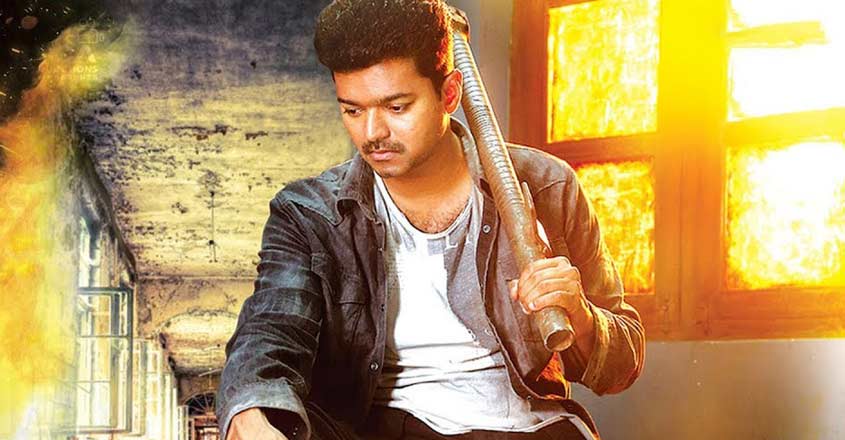
Among them, Mersal had the most number of political punchlines related to free healthcare, GST, demonetisation, cashless economy, governance and so on.
Mersal created the loudest protests by the right wing that targeted Vijay for his mockery of their government’s “historic reforms”, which they were trying to hard sell to a population that has been at the receiving end. He did not just target the government at the Centre, but the Dravidian parties of the state as well, which offer cash and dole out freebies for vote (“If political parties can offer free TV, mixie, and cash for votes, they can also offer free healthcare to all the people.”)
In effect, the controversy that lasted for a couple of weeks gave huge amounts of free airtime and publicity for the film and pushed it to a different league altogether when it comes to the worldwide box office collections.
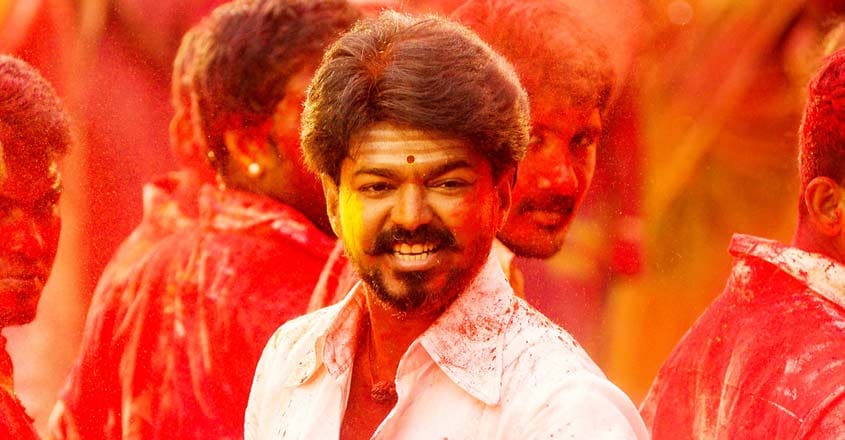
Vijay vs Rajni
Stars who throw their weight behind social causes earn immense respect from the masses. After the violent protests against Vedanta’s Sterlite copper factory in Tuticorin over environmental concerns killed 13 people and injured over 60, Vijay had visited the families of the deceased in the wee hours and handed over Rs.one lakh to each family. The relatives later told the media how he spent time with them and consoled them, sans TV cameras, unlike Rajnikanth.
Rajnikanth on the other hand, visited Tuticorin, but repeated the state government’s version when he blamed anti-social elements for the deaths and asked the state government to "come down hard" on them.
He went to the extent of saying that Tamil Nadu will turn into a graveyard if people hit the roads to protests at the drop of a hat.
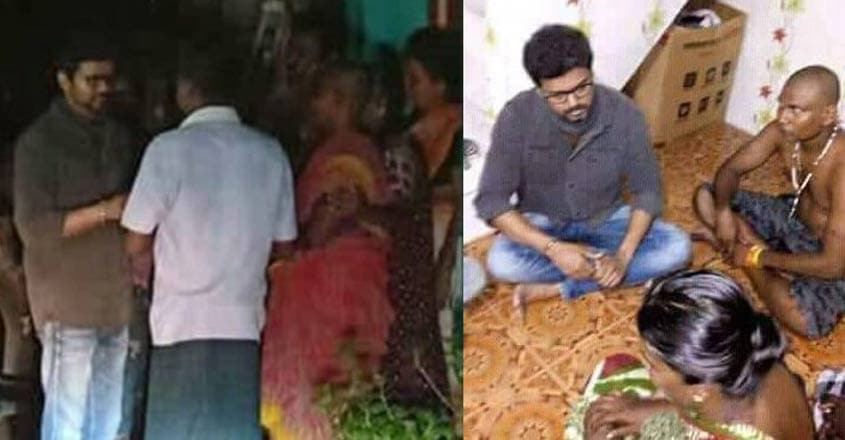
Compare this with Vijay visiting Marina beach during the Jallikkattu protests to express solidarity.
This sharp contrast was visible even last week, when both these actors were probed by the Income Tax department for different reasons.
When the sexagenarian superstar was seen parroting the central government’s line on the controversial Citizenship Amendment Act and getting himself absolved of the I-T cases and the hefty fine that was earlier imposed on them, Vijay co-operated with the probe after requesting his fans to stay calm. After extensive searches and questioning, the I-T department has merely stated that he is being probed.
In one of the other instances in which Vijay proved that he is sensitive to social and political issues, Vijay visited the family of Anitha, the young girl, who had killed herself after being denied a medical seat despite scoring high marks in the board exam after the government implemented the National Eligibility cum Entrance Test (NEET) for admission to medical colleges.
Political ambitions?
Through such mirroring of on-screen political statements with action off-screen, Vijay is widely believed to be nurturing political ambitions.
So far, he has not done anything to mobilise his fans for a political cause.
Considering that the elections are round the corner in Tamil Nadu, he would have ideally started the process long ago.
The paradox is that the two Dravidian parties that have the largest stake in the state’s politics do not seem to be worried about Vijay whereas the BJP, an upstart in Tamil Nadu, is up in the arms against him.

This recent controversy will most likely help the actor in his next release, Master, the shooting of which was disrupted by the sudden crackdown by the Income Tax department. Fans extended their support with #WeStandWithVIJAY on social media while Rajnikath’s statement and the clean chit that he got the same day was widely ridiculed.
Fallout of the controversy
If the bombing of Darbar in box office despite the director including all the typical Rajni film ingredients and presenting the star as a tough police officer who takes on the corrupt system, is an indication, the star does not command the appeal that he had once enjoyed.
Maybe it’s time for the Thalapathy (as Vijay is known among Tamil film fans) to take over the reins as the de-facto superstar who gives maximum moolah for every penny invested on him, not just from pre-release sales of rights, but from actual box office collections.
When it comes to politics, Rajni has been a disappointment and a complete contrast to his screen persona ever since he made his foray into politics after a prolonged build-up.
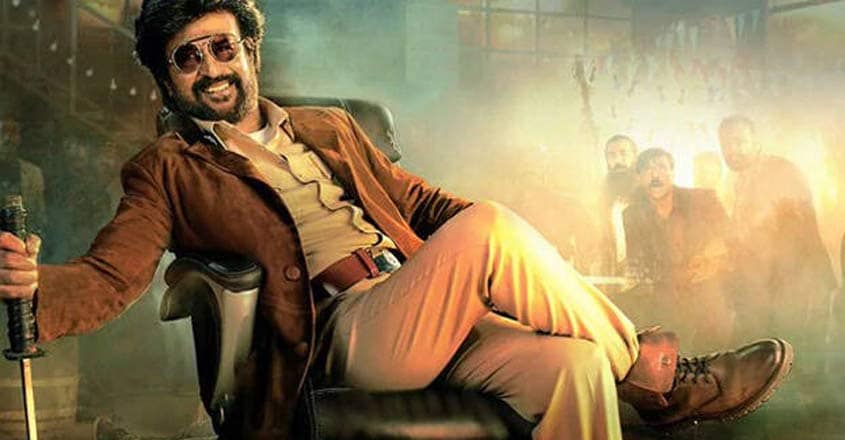
The fallout of putting the spotlight on Vijay and his political statements by the ruling party is, politics is back with a bang in the success formula of Tamil mass 'masala' films. Cinema continues to be the most powerful medium to reach out to the masses. DMK started it decades ago with two of its tallest leaders writing screenplays with political undertones and producing movies fighting censorship and one of the heroes forming his own party and becoming the chief minister using his on-screen charisma. That his successor too, was from filmdom, stands testimony to the clout of cinema in state’s politics.
Vijay’s recent film seems to have dropped hints about his political entry. In Bigil, Rayappan, the don, declares in a scene: “I don’t need power, post or money. I just want peace for my people. I will take to task whoever tries to stop me.” In the long exchange, one line is unmissable: “If I decide on my [political?] entry, I will not do it silently.”
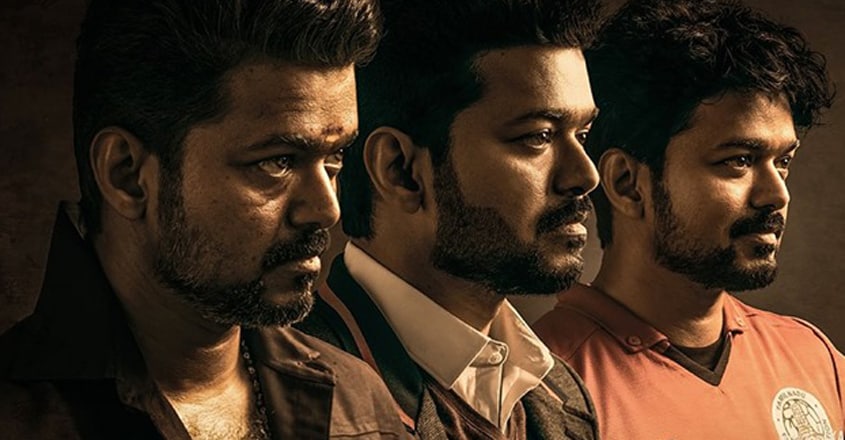
(Dress Circle is a weekly column on films. The author is a communication professional and film enthusiast. Read his past works here.)

